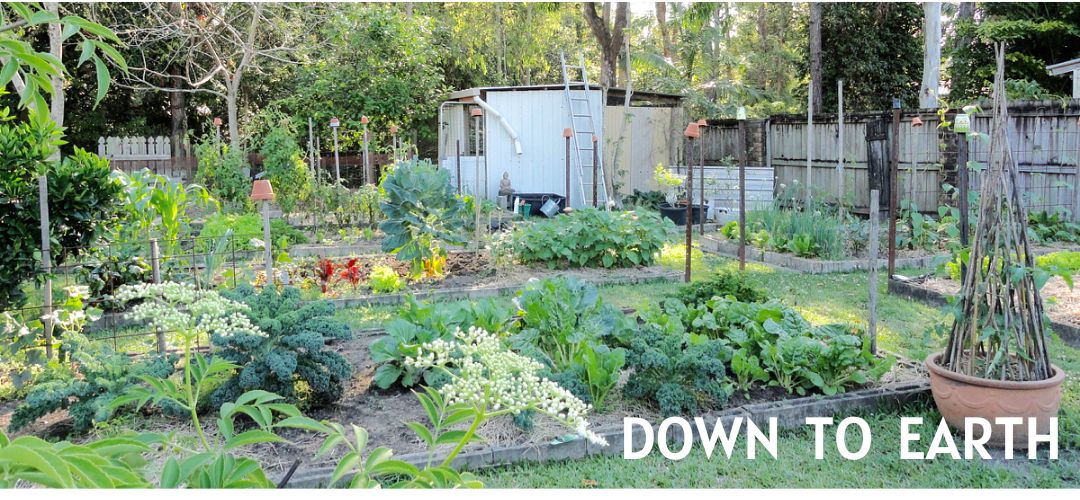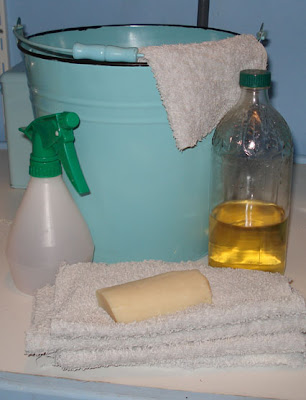When I started simplifying, natural cleaning was one of the first things I went to. I used up all the chemical cleaners I had in the house and used bicarb, white vinegar, salt, washing soda, water and elbow grease instead. I'd forgotten how easy if was to clean without harsh chemicals but the thing that amazed me was that I'd been hoodwinked into thinking I needed a different cleaner for a whole lot of different things. Wrong! I was born in the 1940s, well before the onslaught of all those products commonly used now. Having lived in both camps, let me tell you that natural cleaning is better for you, your family, your wallet and your environment.
I've written about green cleaning before and have a post with recipes here. Today I want to write about the most basic of cleaning methods - soaking and cleaning with water and rags.
I've written about green cleaning before and have a post with recipes here. Today I want to write about the most basic of cleaning methods - soaking and cleaning with water and rags.
A good cleaning kit - a bucket of water, rags, soap and white vinegar (which looks yellow in this photo for some reason), you supply the elbow grease.
The laundry detergent listed in those green recipes will serve you well for most of your clothes but as we all know there are those times when we need a bit more of a punch to get rid of stains. You can either use the heavy duty laundry detergent or you can soak your clothes. Soaking was something that was routinely done when I was a girl. You would either fill the laundry tub if you had a lot of things to soak, or a bucket for a small amount. Then wet the stained article, rub in a good amount of laundry soap, making sure you rub over the entire stain properly, then just put it in the water to soak. Generally these clothes would be soaked overnight and then washed in the machine the following morning.
Oxygen bleach - the powder bleach - is one of the few chemical cleaners I still buy, but I use it sparingly. If I want to whiten up yellowing cotton or linen, or remove a stubborn stain, I soak it overnight in hot water to which two tablespoons of oxygen bleach has been added. Again, the following morning, the clothing is washed, as normal, in the washing machine.
Oxygen bleach - the powder bleach - is one of the few chemical cleaners I still buy, but I use it sparingly. If I want to whiten up yellowing cotton or linen, or remove a stubborn stain, I soak it overnight in hot water to which two tablespoons of oxygen bleach has been added. Again, the following morning, the clothing is washed, as normal, in the washing machine.
But clothing isn't the only thing that will benefit from this treatment. I remove grease on my stove top with plain water and a little soap on a rag. Before I am ready to clean the stove, I pour about half a cup of warm or cold water over the dirty areas and let it sit there soaking until I'm ready to clean. Then I get a clean terry cloth rag, dip it in water and soap it up. I wipe the stove top with that soapy rag, over spills and grease that have been softened by the soaking water, and everything is easily removed - without harsh chemicals. If there is something still stuck on, I rub it with a luffa, a luffa and soap is a powerful ally. Usually I rinse out the rag a few times and repeat the cleaning and when it's clean, I wipe over with a clean and dry rag. I never leave wet surfaces, I always dry them with clean rags. Leaving a wet surface to dry usually gives you streak marks, so it's best to dry it off. You'll find this will finish off your cleaning properly, giving a bit of a polish.
I'm sure many of you already have an efficient green cleaning routine, but if you haven't cleaned like this before, try it, it works. So now, all that is left to do is to remind you to put on your apron before you clean and remember to have a cup of tea or coffee when you finish. :- )
ADDITIONAL READING - BLEACH
Oxygen bleach
Chlorine bleach
ALTERNATIVE TO COMMERCIAL DISHWASHER POWDER
Bicarb in the detergent holder and white vinegar in the rinse aide holder.
I'm sure many of you already have an efficient green cleaning routine, but if you haven't cleaned like this before, try it, it works. So now, all that is left to do is to remind you to put on your apron before you clean and remember to have a cup of tea or coffee when you finish. :- )
ADDITIONAL READING - BLEACH
Oxygen bleach
Chlorine bleach
ALTERNATIVE TO COMMERCIAL DISHWASHER POWDER
Bicarb in the detergent holder and white vinegar in the rinse aide holder.


